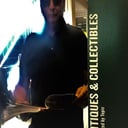What is the name of the dialect of English traditionally spoken by working-class Londoners?
The term cockney has had several distinct geographical, social, and linguistic associations. Originally a pejorative term applied to all city-dwellers, it was gradually restricted to Londoners, and particularly to "Bow-bell Cockneys". It eventually came to be used to refer to those in London's East End, or to all working-class Londoners generally.
Cockney English is the accent or dialect of English traditionally spoken by working-class Londoners. In the 1980s, some features of cockney became more frequent in broadcasting, and the media began to speak of a new standard called Estuary English, but most linguists rejected this analysis and the term is less frequently used now.
Cockney speakers have a distinctive accent and dialect, and occasionally use rhyming slang. The Survey of English Dialects took a recording from a long-time resident of Hackney, and the BBC made another recording in 1999 which showed how the accent had changed.
John Camden Hotten, in his Slang Dictionary of 1859, makes reference to "their use of a peculiar slang language" when describing the costermongers of London. In terms of other slang, there are also several borrowings from Yiddish, including kosher (originally Hebrew, via Yiddish, meaning legitimate) and stumm (/ʃtʊm/ originally German, via Yiddish, meaning quiet), as well as Romany, for example wonga (meaning money, from the Romany "wanga" meaning coal), and cushty (Kushty) (from the Romany kushtipen, meaning good).
More Info:
en.wikipedia.org
















